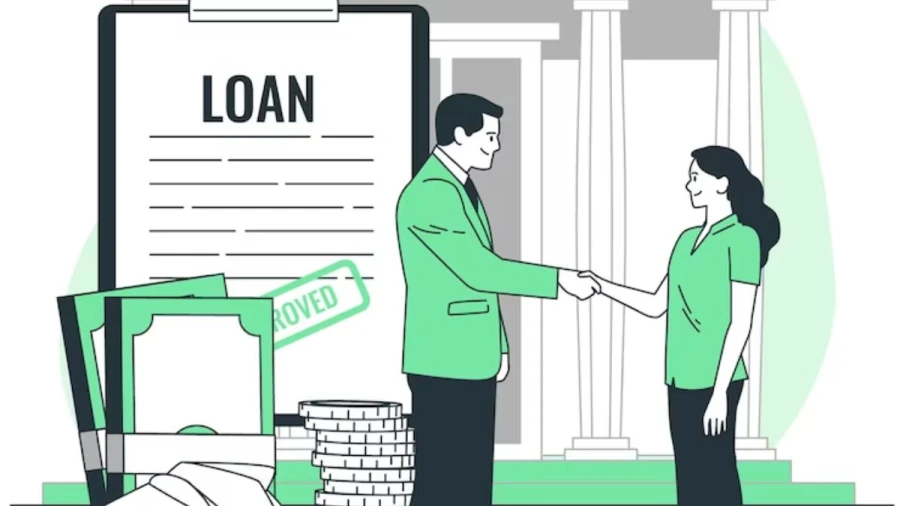
What is an SBA Loan? How to Apply for SBA Loan?
An SBA loan is a government-backed funding option designed to assist small businesses by providing them with loans featuring favorable terms and conditions, ultimately promoting business growth and development.
Published Aug 01, 2023 | Updated Dec 08, 2023 | 📖 4 min read
What is an SBA Loan?
An SBA loan is basically a helping hand for small businesses, covering various needs like startup expenses, working capital, or even buying property. It's not directly from the government but is backed by them, making it less risky for lenders. Usually coming from banks, these loans, backed by the U.S. Small Business Administration, offer good terms and low-interest rates if you meet their standards, making them a top choice for small businesses looking for financial support.
What are the Types of SBA Loans?
Multiple government-backed small-business loan options exist, each carrying distinct terms and conditions. The most suitable SBA loan for your needs hinges on the specific purpose for which you intend to utilize the funding. Here is an overview of the prevalent types of SBA loans.
|
Program |
Loan Size |
Purpose |
|
SBA 7(a) loans |
Up to $5 million |
Working capital, expansion, and equipment purchases. |
|
SBA Express loans |
Up to $500,000 |
Fast funding for working capital, expansion, real estate, and equipment purchases. |
|
SBA 504 loans |
Up to $5 million (up to $5.5 million for select projects) |
Purchase long-term, fixed assets like land, machinery, and facilities. |
|
SBA microloans |
Up to $50,000 |
Working capital, inventory, supplies, equipment, and machinery. |
|
SBA disaster loans |
Up to $2 million |
Repair physical damage due to a declared disaster and cover operating expenses. |
|
SBA Export Working Capital loans |
Up to $5 million |
Working capital to support export sales. |
|
SBA Export Express loans |
Up to $500,000 |
Expedited funding to enhance a business’s export development. |
|
SBA International Trade loans |
Up to $5 million |
Long-term funding to expand export sales or modernize to contend with foreign competitors. |
How to Apply for SBA Loans?
Getting an SBA loan is a bit like a two-step dance. First, you hit the floor by applying for the loan at a bank or credit union. Then, that lender twirls over to the SBA, asking for a loan guarantee. Picture this guarantee like a safety net - if you can't handle the loan, the government steps in to cover the lender's losses.
Now, here's where it gets a bit personal. The SBA asks for an unconditional promise from anyone owning at least 20% of the business. It's like saying, "Hey, if the business stumbles, your personal assets are on the line for the payments." This double layer of guarantees makes lenders feel cozy, and they become more open to helping out small businesses.
Once you get the green light for your SBA loan, it's your lender's turn to take the lead. They wrap things up, hand you the funds, and from that point on, you're in charge of repaying the lender. It's like a monthly rhythm, and you keep dancing until the loan is squared away.
MarketsHost offers a comprehensive and user-friendly guide to Loans, providing you with the insights necessary to embark on a successful financial journey.
What are the Pros and Cons of SBA Loans?
While SBA loans offer favorable terms and large amounts, potential applicants should consider the challenges associated with qualification, processing speed, and personal financial commitments.
Pros of SBA Loans
- SBA loans offer competitive interest rates, often tied to the prime rate, providing cost-effective financing.
- Generally, SBA loans involve reasonable fees, with waived fees for certain categories of loans until September 2024.
- Extended repayment terms for SBA loans give businesses more flexibility in managing finances.
- SBA loans provide substantial funding, exceeding limits set by other lenders.
Cons of SBA Loans
- Hard to Qualify: Strict eligibility criteria require a proven business history, solid finances, and good credit, making qualification challenging.
- Slow to Fund: The SBA loan process can be time-consuming, taking one to three months for fund disbursement.
- Personal Guarantee Required: SBA loans typically demand a personal guarantee from major business owners, adding a personal financial commitment.
SBA Loan Requirements
To qualify for an SBA loan, the specific requirements can differ among lenders and loan programs. While these are general requirements, it's crucial to note that specific lenders and programs may impose additional criteria. Understanding both the SBA's baseline requirements and any additional criteria from your chosen lender is essential for a successful loan application. However, there are common criteria set by the SBA that applicants generally need to meet, regardless of the chosen lender or program:
- For-Profit Business in the U.S.: Your business must operate as a for-profit entity within the United States.
- The business owner should have invested their own resources, including time and money, into the business.
- You must be able to showcase a legitimate need for financing and provide a clear outline of how you intend to use the funds for the benefit of the business.
- Your business must meet the SBA's definition of a small business, which can vary by industry.
What is an SBA Loan - FAQs
1. What is an SBA loan?
An SBA loan is a type of loan program offered by the U.S. Small Business Administration (SBA) to support small businesses in securing financing for various purposes.
2. What can an SBA loan be used for?
SBA loans can be used for a wide range of business needs, including working capital, purchasing inventory or equipment, refinancing existing debts, buying real estate, and funding business expansion or acquisition.
3. How do SBA loan interest rates compare to other loans?
SBA loan interest rates are often competitive and favorable compared to traditional bank loans and other financing options.
4. What are the main types of SBA loan programs?
The SBA offers various loan programs, but the two most common ones are the SBA 7(a) loan program and the SBA 504/CDC loan program.
5. How long does it take to get approved for an SBA loan?
The approval timeline for SBA loans can vary based on factors such as the lender, the type of loan, and the completeness of the application.




